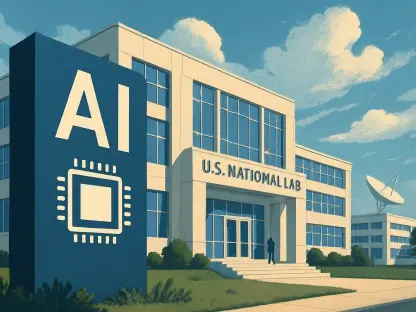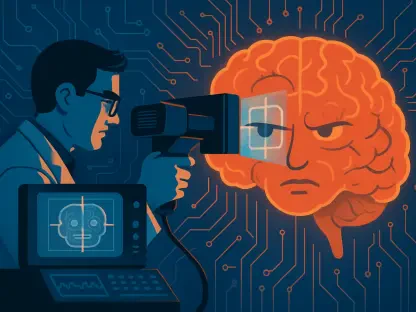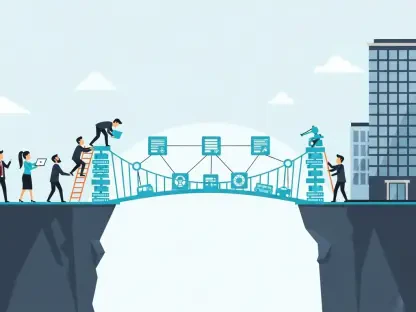In an era where artificial intelligence is increasingly woven into the fabric of critical systems, a stark warning from Ethereum co-founder Vitalik Buterin has brought renewed attention to the vulnerabilities that accompany this technological reliance, especially in high-stakes sectors like cryptocurrency and finance. A recently exposed security flaw in ChatGPT has amplified concerns about the risks of over-dependence on AI for governance and decision-making. This incident, coupled with Buterin’s cautionary insights, paints a troubling picture of how easily sophisticated AI systems can be manipulated, potentially leading to devastating consequences. As the integration of AI continues to deepen, the need for robust safeguards and diversified approaches becomes not just a suggestion, but an urgent necessity. The tech community is now grappling with the dual challenge of harnessing AI’s potential while mitigating the inherent dangers that lurk beneath its promise, setting the stage for a critical dialogue on security and oversight.
AI Vulnerabilities Exposed
The exposure of a security flaw in ChatGPT has sent ripples through the tech world, highlighting just how fragile even the most advanced AI systems can be when faced with malicious intent. A researcher named Eito Miyamura demonstrated a startling exploit involving ChatGPT’s Model Context Protocol (MCP) tools, where a simple calendar invite embedded with a jailbreak prompt allowed unauthorized access to private email data. This breach occurred without explicit user consent, revealing a critical gap in AI security that can be exploited through basic phishing tactics. Such vulnerabilities underscore a broader concern: the ease with which attackers can deceive AI into performing actions that compromise user safety. As reliance on automated systems grows in sectors handling sensitive information, this incident serves as a wake-up call to developers and users alike, emphasizing that no system is immune to manipulation without stringent protective measures in place to counter evolving threats.
Beyond the technical specifics of the ChatGPT exploit, the incident raises profound questions about the readiness of AI systems to handle critical tasks without becoming liabilities. Decision fatigue among users, often approving access requests without fully understanding the implications, exacerbates these risks, creating fertile ground for exploitation. The breach illustrates a dangerous intersection of human error and technological vulnerability, where a single lapse in judgment can lead to significant data exposure. This scenario is particularly alarming in industries like finance, where the stakes are extraordinarily high, and a single breach could result in substantial financial loss or systemic disruption. The tech community must now confront the reality that current AI implementations may lack the resilience needed to withstand sophisticated attacks, pushing for a reevaluation of how these tools are deployed and secured in real-world applications.
Governance Risks in AI Reliance
Vitalik Buterin’s warnings delve into the broader implications of relying on a singular AI model for governance and resource allocation, especially in the volatile realm of cryptocurrency. He argues that a naive dependence on one system creates a dangerous single point of failure, easily manipulated through tactics like jailbreak prompts that trick AI into unauthorized actions such as diverting funds. This vulnerability is not merely technical but systemic, as it threatens the integrity of decision-making processes in environments where precision and trust are paramount. Buterin’s perspective highlights a critical flaw in current approaches: the assumption that AI can operate autonomously without oversight often leads to unforeseen consequences. As industries increasingly turn to automation for efficiency, the risk of such manipulations grows, necessitating a fundamental shift in how AI is integrated into governance structures to prevent catastrophic outcomes.
To address these governance risks, Buterin advocates for a diversified approach that moves away from hardcoded reliance on a single AI model. His proposed “info finance” model integrates multiple AI systems, open market competition, and human intervention through mechanisms like spot checks and jury evaluations. This strategy aims to create a balanced ecosystem where diversity in decision-making reduces the likelihood of systemic failure. By incentivizing external participants to identify and rectify errors or exploits, the model fosters a culture of vigilance and accountability. Such an approach acknowledges the limitations of AI while leveraging its strengths, ensuring that no single point of failure can jeopardize entire systems. This nuanced framework offers a potential blueprint for industries seeking to harness AI’s capabilities without falling prey to its inherent risks, marking a significant step toward more resilient technological integration.
Building a Safer AI Future
Reflecting on the ChatGPT security flaw and Buterin’s insights, it becomes evident that the path forward demands a multi-layered strategy to safeguard AI systems against exploitation. The incident serves as a potent reminder that technological advancement without corresponding security measures can lead to vulnerabilities being exploited at scale. Developers and policymakers have taken note, prioritizing real-time diversity in AI models to prevent over-reliance on any single system. Financial incentives are also being considered to encourage ongoing vigilance among users and external auditors, ensuring that flaws are detected and addressed swiftly. These efforts mark a pivotal moment in recognizing that AI’s role in critical systems requires not just innovation, but a commitment to adaptability and oversight to protect against emerging threats.
Looking ahead, the lessons learned from this episode underscore the importance of hybrid models that combine technological prowess with human judgment. A consensus has emerged within the tech and crypto communities to integrate robust checks and balances, ensuring that AI deployment in high-stakes fields like finance is both secure and sustainable. The focus has shifted to actionable steps, such as fostering collaboration between AI developers and security experts to anticipate and neutralize potential exploits before they can cause harm. This proactive stance aims to rebuild trust in automated systems by demonstrating a commitment to user safety and systemic integrity. As the landscape of AI continues to evolve, these strategies offer a foundation for navigating its complexities, paving the way for a future where innovation and security go hand in hand.









